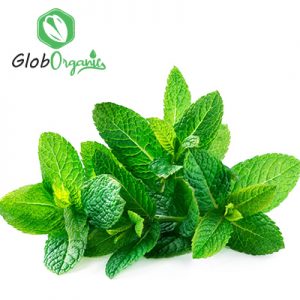Description
What Is Coconut Oil?
Coconut oil is a highly saturated oil that is traditionally made by extracting the oil from raw coconuts or dried coconut kernels.
At room temperature it’s solid, but when heated it can soften or even melt.
It’s frequently used in cooking or applied directly to the skin and hair.
Coconut oil is rich in medium-chain fatty acids, which are a form of saturated fat. In fact, these medium-chain fatty acids make up about 65% of its total composition (4Trusted Source).
The fatty acids found in coconut oil include :
- Lauric acid: 49%
- Myristic acid: 18%
- Caprylic acid: 8%
- Palmitic acid: 8%
- Capric acid: 7%
- Oleic acid: 6%
- Linoleic acid: 2%
- Stearic acid: 2%
Although coconut oil is about 90% saturated fat, it does contain small amounts of mono and polyunsaturated fats as well. One tablespoon contains about 12 grams of saturated fat and 1 gram of unsaturated fat.
It Can Kill Harmful Microorganisms
The medium-chain fatty acids in coconut oil have antimicrobial properties that can help protect against harmful microorganisms.
This is especially important for skin health, as many types of skin infections, including acne, cellulitis, folliculitis and athlete’s foot, are caused by bacteria or fungi .
Applying coconut oil directly to the skin may prevent the growth of these microorganisms.
This is due to its lauric acid content, which makes up nearly 50% of the fatty acids in coconut oil and can fight harmful microorganisms.
One study tested the antibacterial properties of 30 types of fatty acids against 20 different strains of bacteria. Lauric acid was found to be the most effective at blocking the growth of bacteria.
Another test-tube study showed that lauric acid can kill off Propionibacterium acnes, a type of bacteria that leads to the development of inflammatory acne.
Furthermore, capric acid is another medium-chain fatty acid found in coconut oil, although to a lesser extent. Like lauric acid, capric acid has been shown to have potent antimicrobial properties.
A test-tube study showed that both lauric and capric acid effectively killed off strains of bacteria.
Another test-tube study demonstrated the anti-fungal effects of capric acid, showing that it was able to inhibit the growth of certain types of fungi .
Coconut Oil Could Reduce Inflammation
Chronic inflammation is a major component of many different types of skin disorders, including psoriasis, contact dermatitis and eczema .
Interestingly, coconut oil has been shown to have anti-inflammatory properties.
In one study, researchers applied virgin coconut oil to the inflamed ears of rats. Not only was coconut oil found to have an anti-inflammatory effect, but it relieved pain as well .
What’s more, coconut oil may ease inflammation by improving antioxidant status.
Antioxidants work by stabilizing free radicals in the body, neutralizing the reactive atoms that can contribute to inflammation.A 2013 animal study fed rats different types of oil, including coconut oil, olive oil and sunflower oil. At the end of the 45-day study, virgin coconut oil had improved antioxidant status and prevented oxidative stress to the greatest extent .
It’s important to keep in mind that most current research is limited to animal and test-tube studies, so it’s hard to know how these results may translate to humans.
However, based on these studies, coconut oil shows great potential in its ability to reduce inflammation when consumed or applied to the skin.
Coconut Oil May Help Treat Acne
While some think coconut oil clogs pores, considerable research shows it might actually help treat acne.
Acne is an inflammatory condition, and many of the medications used to treat it work by targeting and reducing inflammation .
Because coconut oil and its components may help reduce inflammation in the body, it may also aid in the treatment of acne.
Furthermore, the antibacterial properties of the medium-chain fatty acids in coconut oil could also help reduce acne.
Numerous studies have shown that lauric acid, which accounts for nearly half of the fatty acids in coconut oil, has been shown to kill off the strain of bacteria linked to acne .
In fact, test-tube and animal studies have shown that lauric acid is more effective than benzoyl peroxide at preventing the growth of acne-causing bacteria.
Along with lauric acid, capric acid has been shown to have anti-inflammatory and antibacterial properties.
A 2014 animal and test-tube study showed that both lauric and capric acid were successful in reducing inflammation and preventing acne by killing off bacteria.
To get the best results, coconut oil should be applied directly to the skin in areas where acne is found.
Buy in Bulk
Min.Order Quantity: 50 Pieces or 5l
Supply Ability: 2000 l per Week
Port: Casablanca /Tanger MED / Agadir
Payment Terms: L/C,T/T,Western Union,MoneyGram,PAYPAL
Packaging & Delivery
Packaging Details : 100ml, 150ml,250ml ,1l ,5l ,20l,1T plastic jars.
Delivery Time: 15 days after confirmation of all detaills and deposit.





